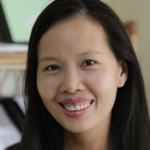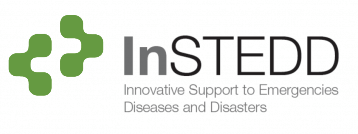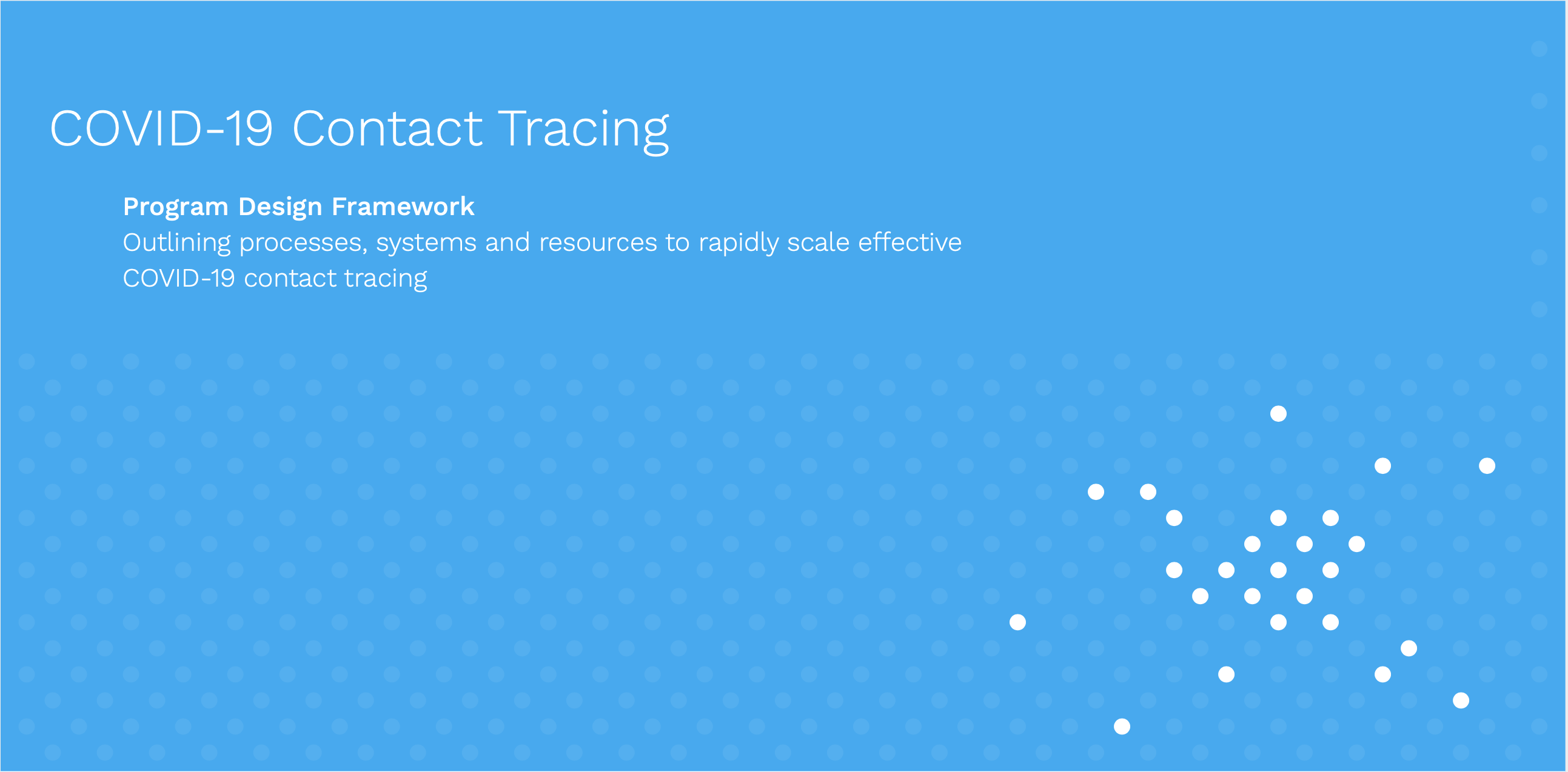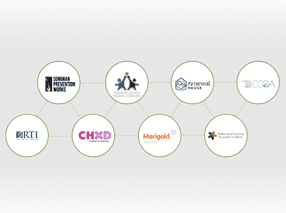
Six years ago, in 2011, the Swedish Program for ICT4D in Developing Regions Program (SPIDER) began a multi-year technology, research, design, development and deployment collaboration with the InSTEDD iLab Southeast Asia office (iLab SEA). The common shared goal between the organizations was to assist efforts in Cambodia around knowledge sharing and innovative implementation of information communication technology for development (ICT4D). To date, the partnership has achieved impact across Cambodia, detailed in a case study series on how Verboice, an open-source mobile tool that allows building interactive voice response systems for engaging beneficiaries, was used by diverse impact organizations in the country.
In 2016, SPIDER and iLab SEA moved to deepen and expand their collective impact with a renewal of the partnership and the launch of an ICT4D solutions incubator in Cambodia. The project allows the collaborative partnership to continue uncovering the full potential of technology on economic growth, education and health outcomes. To showcase the prosperous relationship between these two very different organizations, we have interviewed Channe Suy, from iLab SEA, and Katja Sarajeva, from SPIDER. These in-depth interviews cover their work in the ICT4D ecosystems, what they have learned from the collaborative partnership, and other insights on advancing innovative technologies for international development.
Note the interviews have been edited slightly for readability.

Interview with Katja Sarajeva, Program Manager at the Swedish Program for ICT4D in Developing Regions Program (SPIDER) Center
Can you share your work with us?
Katja: SPIDER is a center in Information Communication Technology for Development (ICT4D). We are mainly funded by Swedish International Development Cooperation Agency – Sida, and our aim is to both strengthen the use of ICT in international development and spread knowledge about how ICT can be used for development. Our goal is to bring our partners together to collaborate and make them work more efficiently and effectively.
Tell us about your team at the SPIDER.
Katja: At the moment, we are ten full-time staff with an annual budget of about 15 million Swedish crowns ($1.6 Million USD). Our work is to support projects in developing countries where local organizations can either start using or extend their use of technology in the projects they implement. We also support organisations to form networks to get in touch with each other, collaborate, and share knowledge, especially between very different actors doing a lot of separate work in ICT4D. You can find actors from the private sector, academia, civil society in different ways engaged in ICT4D but all of them have limited contact with each other, to share knowledge and collaborate. These different actors have a lot to learn from each other and a lot to gain from collaborations. Especially when we talk about organizations that work at the grassroots level and companies that focus on technology development.
Tell us about when and why SPIDER was formed.
Katja: SPIDER was formed in 2004 thanks to Swedish International Development Agency (SIDA), who recognized that mobile technology and ICT would play a major role in development, long before the big boom of mobile technology globally. SPIDER was created to leverage the knowledge available in Sweden; in particular, the skills at universities and skills of researchers to ensure the development would work. During the first years of operations, SPIDER was based at KTH Royal Institute of Technology in Stockholm. The initial work was not just about developing ICT solutions, but focused on helping researchers and development work to come together with new project ideas. Later, SPIDER shifted to ensuring that what is done is based on evidence or previous experience, as well as connecting research directly to projects to follow up results.
Where is SPIDER based today?
SPIDER is based at Stockholm University at the Department of Computer and Systems Sciences. We administratively belong to Stockholm University, which means we are a government entity. This has certain benefits, responsibilities, and demands when it comes to agreements and partnership building. Stockholm University is also a co-funder of SPIDER.
Where does SPIDER work and who are there partners?
Katja: SPIDER is collaborating with partners in Bolivia, Cambodia, Kenya, Tanzania, Uganda, and Rwanda, spread over three continents. During 2016, SPIDER has branched out into Zambia; we are establishing partnerships in Myanmar, and developing a regional project in South East Asia. Our partners are usually small to medium sized local NGO’s. We work in education, health, transparency and accountability. During 2016, SPIDER also piloted an international training program for ICT regulators in East Africa as well. This may be rolled out to cover more regions.
What are the challenges in delivering ICT4D tools that you have seen across your work?
Katja: Just because you have a tool, it doesn’t mean it will work for the problem you are trying to solve. 95% of the world’s population lives in an area covered by a mobile signal. Phones are also increasingly accessible; when people do not own a handset they can often borrow a phone, but just because the technology is there, it doesn’t necessarily make it a good fit. There has been a tendency to see every new technology as a silver bullet, a tool that can solve everything. And lately, there has been a lot of ‘oh, we can use a mobile phone, let’s try’. However, the impact hasn’t come as strongly as the enthusiasm. There is no such thing as one technology that will provide a solution to all problems; there is no universal tool. Even duplication of an approach across countries or regions may not work, because it’s more about learning under what circumstances a tool is useful and always being ready to try something and if it doesn’t work, simply try something else. Providing the software for free is great because it opens opportunities for organizations to dare to try something, since at least the software costs nothing.
Can you expand on the gaps that limit impact?
Katja: I think there are many gaps out there with the availability of information and services. There are a lot of attempts at solutions, but only a few of these take root and grow into something that produces change. This signals there is a disconnect between the user group and the developers. So, there are a lot of ideas and many solutions being developed, but they’re not always well connected with the actual needs. We have 50 million handheld apps, but we still have people who lack information. Where are we failing? Instead of building another app or thinking of another system, we should do the less exciting thing, which is to sit down and try to figure out what didn’t work, why didn’t it work, and try to work with what we have. Sometimes, it’s easier and more alluring to give up on an idea and start from scratch, which makes the success ratio for ICT4D projects fairly low.
What have you learned from the SPIDER and InSTEDD iLab Southeast Asia partnership?
Katja: SPIDER has worked with InSTEDD iLab Southeast Asia (iLab SEA) since 2011, and the collaboration has succeeded in two ways. First, implementing the projects itself has succeeded in the sense that local grassroots organizations have used ICT to reach to reach development results. Second, this has pushed forward the use of technology in development and, therefore, ICT4D as a field. The open source, interactive voice response tool Verboice that was developed by InSTEDD, and localised by InSTEDD iLabs South East Asia, has been adapted and deployed across Cambodia by SPIDER partners and other organisations.
The exciting thing with this approach has been that NGOs in Cambodia worked with iLab SEA to tailor ICT solutions to their needs and developed tight collaborations, where the first group had the contextual knowledge of the problem and the other the technical understanding. This is something we want to build in our work, enabling and supporting people to work together and make possible a relationship that continues to create long term benefits.
Is there anything you can share about your work for 2017?
Katja: We expect that SPIDER will deepen its initiatives, rather than broaden them. We’ll continue to collaborate with a few of the same organizations but in a different way – trying to build a chain of transparency and accountability within each country. We will try to translate our experience along the same lines as the ‘ICT4Democracy in East Africa Network’. So, in Cambodia, we will talk to the existing partners and see how we can expand their reach and expand their work with other organizations to existing work. Hopefully, we will see our work expanding in Africa as well, but either way, we are always open to new proposals and partnerships.

Interview with Channe Suy, Regional Lead for iLab Southeast Asia (iLab SEA)
Tell me about your work, where do you work and what is it that you do?
Channe: I work at the InSTEDD iLab SEA, based in Phnom Penh, in Cambodia, and we work on the design, development, and deployment of technology solutions for social good in the Mekong Basin Region. We work with the government, community-based organizations and with international NGOs to solve different challenges and increase their reach and impact. We were founded to help support those trying to prevent pandemics in the region, and to this day, we work on a lot of health-related projects. More recently, we have also expanded work in non-health areas as well lately working on agriculture, education and labor rights.
Can you tell me a little bit about your collaboration with the local technology sector in Cambodia?
Channe: We have been working with people from the technology sector in Cambodia since iLab was set up. We engage with the local community to support the realization of technology for good across the region, but also because it allows our team to exchange knowledge with other tech groups. We do this by attending different events and organizing workshops like iCamps and BarCamp. We also share the space of our iLab to host different local events. What I would mention as a positive development is the tech scene has been getting bigger in Cambodia since our founding. The tech community has been receiving more support from several other partners, such as USAID. However, I think it’s humbling for us to witness the starting point of the tech ecosystem in Cambodia to today.
Can you mention some of the partnerships and geographies that you have worked in since the iLab was launched?
Channe: One of the longest partners we have is the Ministry of Health Cambodia Communicable Disease Control Department (Cambodia CDC). The Cambodia CDC partnership started in 2009. We have been collaborating on a range of projects and issues such as infectious diseases, mainly malaria, tuberculosis, and HIV. Other countries in the region have recognized our work, and we have completed projects with other partners in Thailand, Myanmar, Laos and many others in the region. We are also excited that we are beginning a new initiative in Vietnam to replicate one of our most successful projects, the 115 national disease reporting hotline. This is exciting for us because the iLab was set up was to support other countries in technology solutions and to improve disease detection and cross-model sharing of information. Cambodia has been setting a good example that other countries want to adopt. So, I think that’s the big achievement.
What is an example of one of the open source tools the iLab SEA uses?
Channe: Resource Map is an open source platform that INSTEDD iLab SEA created. It is used for data collection and visualization of the data on a map. It’s a simple tool actually that allows any of the projects that need to deal with data to easily create and manage a data collection and monitor the progress, as well as visualize the data on a map. It has been used in different countries for different purposes. In Cambodia, right now, World Food Program has also been using it and the design of the software makes it simple and easy for any NGOs and governments to use. Data collection can be a big pain among organizations helps to collect and manage the data.
Can you talk about the background of the partnership with SPIDER?
Channe: One of our long-term partners is Stockholm University through their programme SPIDER, the Swedish Program for ICT4D in Developing Countries. Our partnership started around making the INSTEDD open source interactive voice response system (IVR) platform called Verboice available to many organizations in Cambodia. With support from SPIDER we were able to help local NGOs to increase and scale their impact beyond just a small scale. The funding has allowed us to support the national elections in Cambodia, to raise awareness among the general public. It was deployed a few months before the elections and received about half a million calls by people to the line. We have created a case study series on the impact of the program on our website that details how different organizations have used Verboice for impact.
Tell us about the new incubator programme supported by SPIDER?
Channe: The incubator program is a new program that is funded by SPIDER. The goal of collaboration in the incubator is to work closely with the implementation partners in the field – with us as the technology experts – helping them in designing and in early stage solutions. They know the challenges that the local population face and we help them go through the human centered design approach, and discuss possible solutions that are feasible. The projects that we find feasible are then funded for three months. So, after those three months, the solutions are deployed and piloted in the field. We are looking at minimum investment for a maximum impact by thinking from different perspectives and different angles. At the same time we are bringing multiple partners on board to the program, allowing them to actually collaborate more, share more, and reduce the barriers that exist.
What can we expect from you in the future. What are some of the goals that you’ve set for yourself or some of the goals that you’d like to see happening? What are your organizational dreams?
Channe: Our dream is to support not just one partner but to have a platform that can benefit others to adapt. I believe that our collaboration with the Ministry of Health, in Cambodia is a good example. We would like to build positive examples not just in Cambodia but also in the region and in other countries as well and achieve a bigger impact. Then the lessons learned can be shared between them and they can learn from the previous implementer, so that new projects can adapt and implement better. And we hope to see more collaborations between partners that leads to more data sharing and data transparency. We hope to see more partnerships with other labs, in the region. We hope that the incubator model that we do in Cambodia can also be done in other countries, and we’re hoping that we can document more of the lessons – the how to – that allows other groups in the future to make use of, and to adjust and implement in their own countries.





